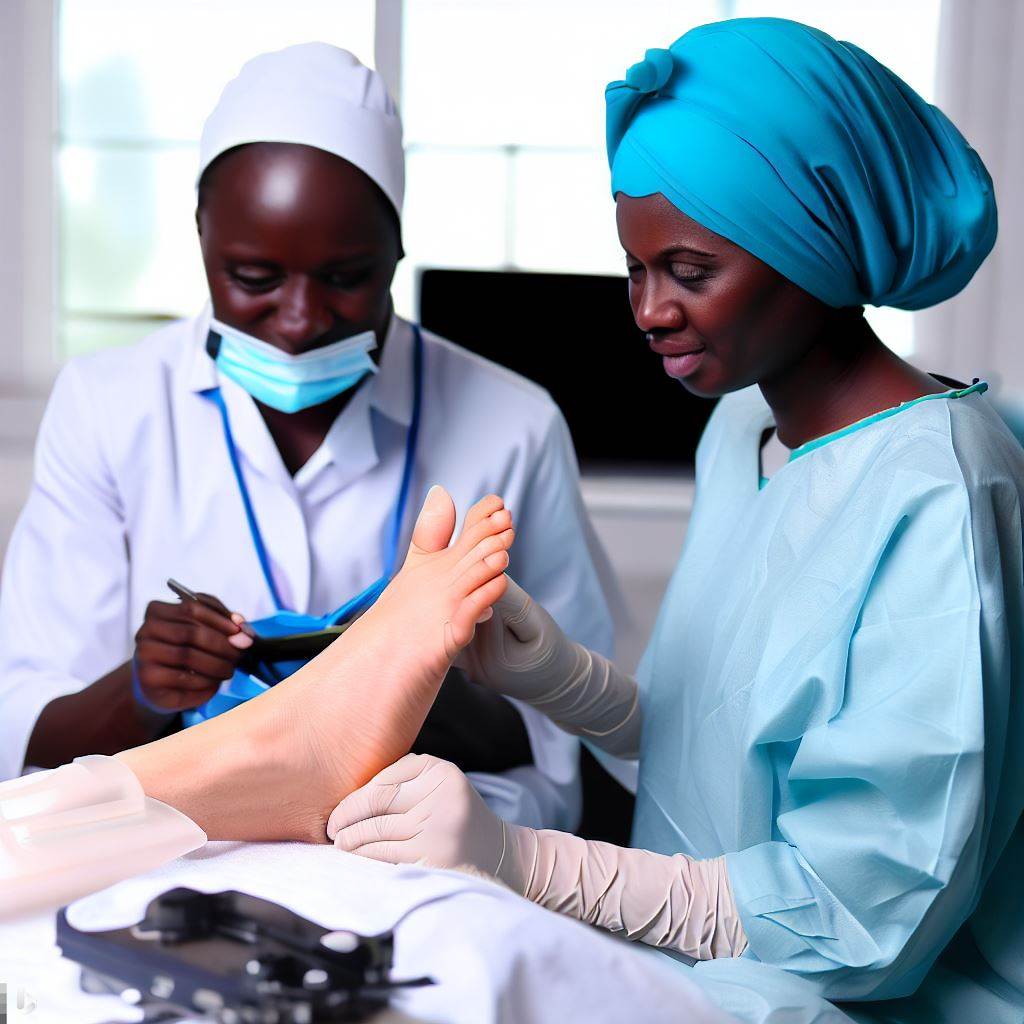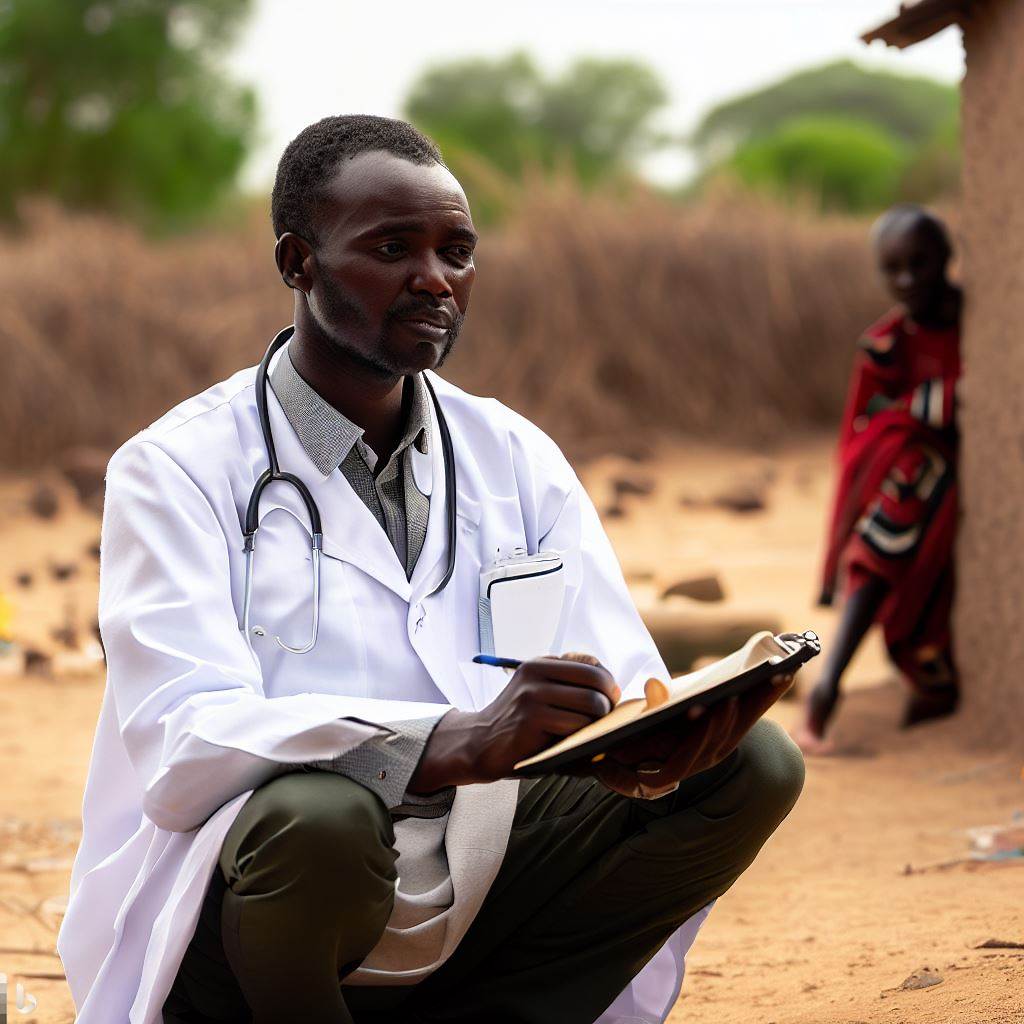Introduction
Veterinary services play a crucial role in Nigeria, providing healthcare for animals and ensuring food safety. Nigerian veterinarians face both challenges and opportunities in their profession.
This blog post will explore these challenges and opportunities and highlight their significance.
Nigeria, with a population of over 200 million people, heavily relies on agriculture for economic growth and sustenance. As a result, the health and productivity of livestock are of paramount importance.
Veterinary services are essential in preventing the spread of diseases among animals and safeguarding public health.
Furthermore, Nigerian veterinarians contribute to the country’s food security by ensuring the health and well-being of livestock.
They provide advice and support to farmers, helping them improve productivity and prevent economic losses due to animal diseases.
Amidst these critical roles, Nigerian veterinarians face several challenges. Limited resources, including infrastructure, equipment, and funding, hinder their ability to provide adequate healthcare for animals.
Additionally, a lack of public awareness and education about the importance of veterinary services poses a challenge for the profession.
However, there are also opportunities for Nigerian veterinarians. With the increasing demand for animal protein and the growth of the livestock sector, the need for skilled veterinary professionals is rising.
This presents an opportunity for veterinarians to expand their services and contribute to the country’s economic development.
Basically, Nigerian veterinarians play a vital role in ensuring animal health, food safety, and economic growth.
Despite the challenges they face, such as limited resources and public awareness, there are opportunities for their profession to thrive.
By addressing these challenges and seizing opportunities, Nigerian veterinarians can make significant contributions to the nation’s development.
Read: How to Navigate Counselor Certification in Nigeria
Challenges Faced by Nigerian Veterinarians
Nigerian veterinarians encounter challenges hindering animal care:
- Scarce resources, equipment, tech impede diagnosis and treatment.
- Inadequate funding limits research, innovation in veterinary field.
- Insufficient access to medicines, vaccines jeopardizes animal health.
- Few clinics, especially in rural areas, limit veterinary care access.
- Limited diagnostic labs delay disease identification, control.
- Urban-rural vet service disparity leaves rural areas underserved.
- Public unawareness weakens disease prevention efforts.
- Few accredited schools result in shortage of trained professionals.
- Pet owners’ lack of knowledge causes neglect, disease spread.
- Nigerian vets must educate, promote responsible pet ownership for better animal health.
Read: An In-Depth Look: Radiation Therapist Profession in Nigeria

Opportunities for Nigerian Veterinarians
Livestock Sector
- Growing demand for meat, milk, and poultry products.
- Expansion of the livestock industry and the need for veterinary services.
- Potential for increased collaboration with farmers and livestock stakeholders.
Zoonotic Disease Management
- Rising awareness of zoonotic diseases and their impact on public health.
- Opportunities for veterinarians to play a key role in disease surveillance and control.
- Potential for involvement in interdisciplinary collaborations with human health professionals.
One Health Approach
Nigerian veterinarians encounter challenges, but opportunities exist for growth and impact:
- Livestock sector expansion demands veterinary services, fostering collaboration for healthier industry.
- Zoonotic disease awareness lets vets manage and prevent transmission, working with human health experts.
- One Health approach links animal, human, environmental health, encouraging interdisciplinary collaboration.
- Veterinarians can contribute to public health, conservation, and a sustainable future by seizing these opportunities.
Read: Comparative Study: Psychiatry in Nigeria and Other Countries
Overcoming Challenges and Utilizing Opportunities
Strengthening Veterinary Education
- Improving veterinary curriculum to address current challenges and opportunities.
- Establishing partnerships with international institutions for knowledge transfer.
- Investment in continuous professional development of veterinarians.
Advocacy and Awareness
- Raising awareness on the importance of veterinary services.
- Promoting responsible pet ownership and animal welfare.
- Collaborating with government and NGOs to advocate for improved veterinary infrastructure.
Research and Innovation
- Encouraging research in veterinary sciences to address specific Nigerian challenges.
- Exploring innovative solutions for limited resources and infrastructure.
- Utilizing digital technologies for remote consultations and telemedicine.
Read: The Changing Landscape of Psychiatry in Nigeria: A Review
Conclusion
Nigerian veterinarians face several challenges that hinder the provision of veterinary services in the country.
These challenges include inadequate resources, limited funding, and a lack of recognition and support from the government.
However, there are also potential opportunities available for Nigerian veterinarians.
These include advancements in technology, increasing public awareness about animal health, and the potential for collaboration with international organizations.
It is crucial to address these challenges and utilize the opportunities to improve veterinary services in Nigeria.
By allocating more resources, increasing funding, and advocating for government support, Nigerian veterinarians can overcome the obstacles they face.
Furthermore, leveraging advancements in technology and engaging in research and innovation can help Nigerian veterinarians deliver better healthcare for animals.
Public awareness campaigns can also educate the population about the importance of veterinary care and encourage them to seek professional assistance.
In essence, Nigerian veterinarians play a vital role in promoting animal health and welfare.
By addressing the challenges they face and taking advantage of available opportunities, they can make significant progress in improving veterinary services and ultimately contribute to the overall well-being of both animals and humans in Nigeria.




